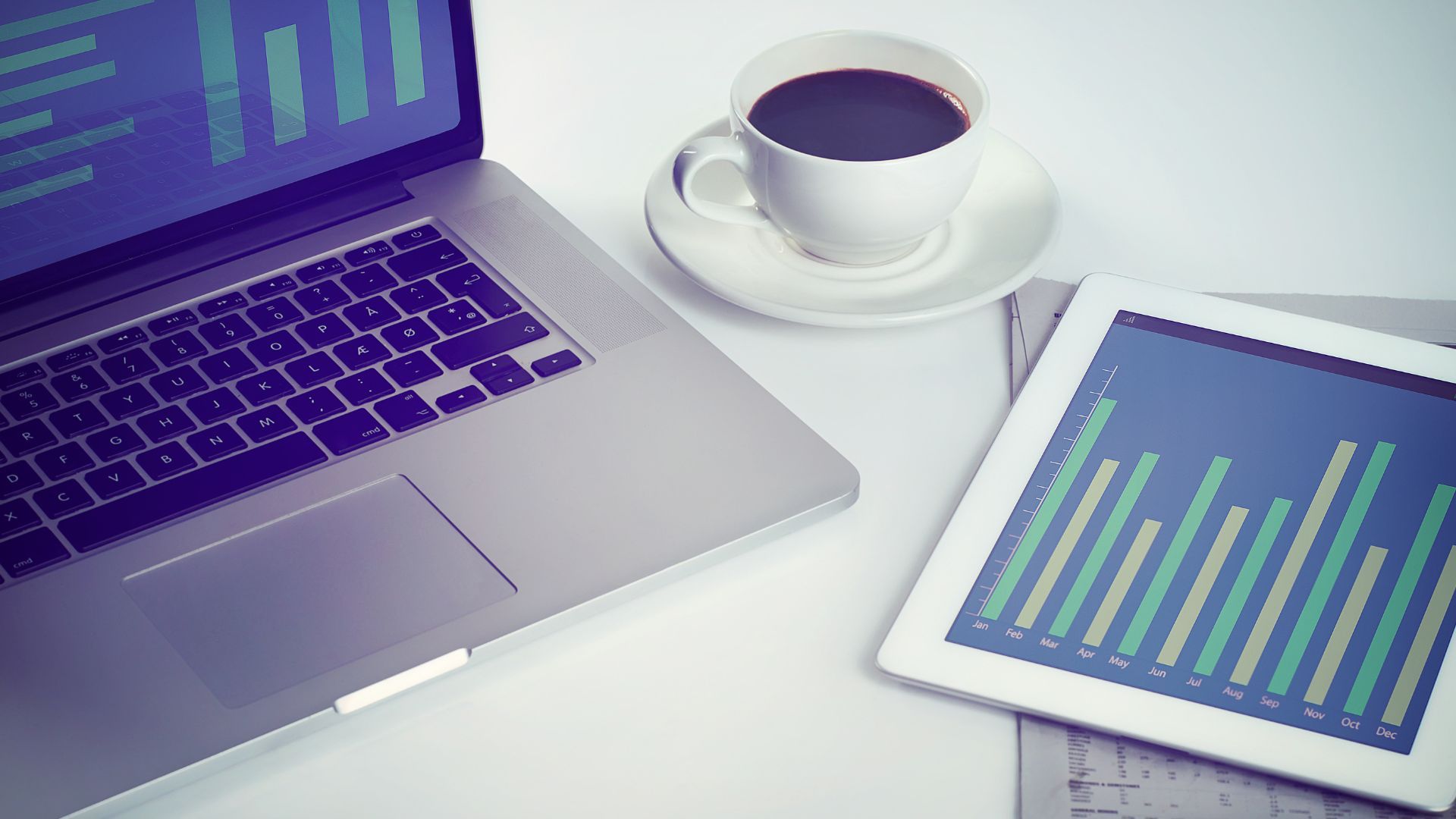Navigating Business Expenses as a Limited Company
Smart Spending. Navigating Business Expenses as a Limited Company
With so many benefits of contracting through a limited company, it's easy to see why it's something a lot of people do. From increased take-home pay, to having more control over your working life, setting up a limited company is hugely appealing. But, with greater freedom comes greater responsibility, especially when it comes to business expenses.
At
Go Limited, we've seen for ourselves how managing your expenses can significantly reduce your tax bill, whilst also ensuring your business remains compliant with HMRC. However, the rules around what you can and can't claim are often complex and frequently misunderstood.

What are Limited Company Allowable Expenses?
There's a lot that goes into running a business, a lot of which can be costly. Luckily, there are a whole host of limited company allowable expenses that you can claim. These are costs that you can deduct from your limited company income, which lowers the amount that you pay tax on. By lowering your taxable products, you can reduce your tax bill in a way that's completely legal, efficient and allowed by HMRC.
However, you can't claim everything you spend as an allowable limited company expense. To quality and be allowed, expenses must be wholly and exclusively for business purposes. This means they must be essential to the business, incurred as part of day-to-day business operations and not be used for personal benefit. If an expense has any personal benefit, you can only claim the business part. This means determining how much of an expense benefits the business, and how much benefits you away from the business. For example, you can't claim your personal care as an allowable limited company expense, but you can claim for the mileage related to running your business.
What Limited Company Expenses Can a Contractor Claim?
If you're a contract who's set up a limited company, you have the benefit of being able to claim a wide range of allowable limited company expenses. The list is vast, but here are some of the most commonly claimed costs.
Business Travel and Subsistence
If you travel to a temporary workplace - for example, you travel to a client site - you can claim the cost of doing so. This includes train, bus and taxi fares, or care mileage if you drive yourself there. You can also claim for hotel accommodation while working away from home, and meals and refreshments during work-related travel. However, it's important to remember that you can
only claim to travel to a temporary workplace. If the same location becomes your permanent place of work, travel expenses are no longer allowed.
Office and Equipment Costs
You can claim costs related to setting up and running your business operations, including desks, chairs, ergonomic accessories, computers, monitors, printers and mobile devices. You can also claim for business telephone and internet access, stationery, postage and maintenance of office equipment. If you work from home, as many contractors do, you can also claim a portion of utility bills based on business use or HMRC's simplified flat rate. This is set at £25 per month if you work more than 101 hours, and you can claim this without needing evidence.
Professional Fees and Subscriptions
Depending on the type of work you do, you might have professional fees and subscriptions to pay for. These are often allowable expenses, which means you can save money by claiming on. This includes accountant and bookkeeper fees, legal fees related to business contracts or disputes, subscriptions to industry bodies and business bank account fees.
Insurance and Compliance
You might need to pay for insurance and compliance as a limited company contractor, such as
professional indemnity insurance, public liability insurance and employers' liability insurance if you have employees. If that's the case, you can claim these costs as allowable expenses for your limited company.
Marketing and Advertising
With so many limited companies and contractors out there, you need to market and advertise yourself, your business and your services. As these costs are for the benefit of your business, they're limited company allowable expenses. Website design, hosting, domain renewals, online advertising, business cards, brochures, signage and social media marketing tools are all included.
Training and Development
Training costs may be claimable if they maintain or improve your existing professional skills. However, learning new skills - for example, those that prepare you for a different line of business - are not always allowed. You need to find a balance between training and development that benefits you, but is also directly related to your business.

What Limited Company Expenses Can't a Contractor Claim?
It's one thing to know what you can claim for, it's a whole other task to know what you can't claim for. HMRC is strict when it comes to disallowed expenses, particularly anything that appears to benefit you personally, so you need to be completely sure of what expenses you cannot include.
- Commuting to a Permanent Workplace - Travel to and from your regular workplace, especially if it's long-term, is considered a personal commute and is not deductible as an expense.
- Entertaining Clients - Entertaining clients, prospects or suppliers - for example, taking them out to meals or trying to 'woo' them with gifts - cannot be claimed for tax purposes, even if it's for business development.
- Clothing - Only uniforms, safety gear or branded workwear are claimable as limited company expenses. Everyday clothes, even if worn exclusively for work, are not deductible.
- Training for New Skills - If you're learning something new - for example, if you're switching from one industry to another - the course is not viewed as a business expense, and therefore can't be claimed.
- Fines and Penalties - If you're unlucky enough to get a parking fine, HMRC penalty or late filing fees, you can't add the cost into your list of allowable expenses. These are always disallowed, regardless of whether they were incurred during business activities.
- Private Use Items - If an item or service is used for both personal and business reasons, you can only claim the business-use proportion. If HMRC asks, you must be able to demonstrate this split.
Tips for Navigating Limited Company Expenses
Managing yourbusiness expenses means staying organised, compliant and proactive, especially if you're hoping to reduce your tax liability.
- Use Cloud Accounting Software - There's various accounting software out there, so make use of it. Platforms like Xero and QuickBooks can automatically track income and expenses, attach receipts and prepare reports, making year-end accounting much easier.
- Maintain Detailed Records - Keep digital or physical copies of every receipt, invoice or contract. This will help you to keep on top of what you've spent. For expenses, record the date, the amount and the reason for the expense.
- Log Expenses in Real-Time - Don't wait until the end of the month to update everything, it's much easier to log expenses as they happen. This helps prevent missed claims and ensures accuracy.
- Use a Business Bank Account - Keeping business and personal finances separate helps track spending more clearly. It's easy to see what's been spent by the business, and what's been spent by you.
- Review Expenses Regularly - Set time aside monthly or quarterly to review expenses and flag anything that seems excessive, unclear or potentially disallowable. This allows you to rectify any mistakes before it's too late.
- Be Cautious with Grey Areas - If you're unsure whether an expense is allowable, don't guess. HMRC penalties for incorrect claims can be severe, and it's always best to ask an expert if you're unsure.

The Benefits of Handing Allowable Expenses Over to an Expert
Navigating expenses can be time-consuming, confusing and stressful times. That's why many contractors choose to delegate financial management to a limited company accountant, particularly one experienced in working with contractors and freelancers.
- Maximise What You Can Legally Claim - Accountants know the ins and outs of allowable expenses, and they know the HMRC rules inside out. They can identify claimable expenses you might miss and help you benefit from lesser-known allowances.
- Avoid Mistakes and Penalties - An incorrect claim, even if unintentional, can trigger a tax investigation. An expert will ensure you stay compliant and avoid red flags.
- Save Time and Focus on Your Work - Handling expenses, chasing receipts and updating spreadsheets takes time away from billable work. Letting someone else manage it frees you up to focus on clients and growth.
- Stay Up-to-Date with Legislation - Tax laws change frequently, and keeping up can be tough. Your accountant will keep you informed of updates that affect your company and adjust strategies accordingly.
Managing limited company expenses doesn't have to be overwhelming. With the right systems in place, help from Go Limited, and a clear understanding of what's allowable, you can take full advantage of tax relief, stay compliant and operate your company efficiently.
FAQ
Smart Spending for UK Contractors Running a Limited Company
What counts as a legitimate business expense for my limited company?
A legitimate business expense is wholly, exclusively and necessarily incurred for the purpose of running your business. Common examples include:
- Office supplies and equipment
- Business travel and accommodation
- Professional subscriptions (e.g. to industry bodies)
- Accountancy and legal fees
- Software and tools used for work
- Always keep receipts and records to support your claims.
Can I claim for meals and entertainment?
Yes, but only under specific conditions.
- Client entertainment is not tax-deductible.
- Meals during business travel (e.g. while working away from your usual place of business) can be claimed.
- Subsistence is allowed for temporary work travel, but not for your regular commute.
3. What's the rule on claiming travel expenses?
You can claim:
- Mileage (45p per mile for the first 10,000 miles in a tax year, 25p after)
- Public transport fares
- Parking and tolls
You cannot claim:
- Fines
- Daily commuting between your home and regular workplace (unless it's a temporary assignment under the 24-month rule).
Can I claim expenses if I work from home?
Yes, you can claim a portion of your household bills if you regularly work from home. Options include:
- A flat rate simplified expense (£6/week)
- A proportional cost method based on actual usage (e.g. percentage of heating, electricity, internet)
- Keep clear records if using the proportional method.
Can I buy a laptop or mobile phone through the company?
Yes – as long as they're used mainly for business purposes. These items are considered capital assets and may qualify for Annual Investment Allowance (AIA), making them tax-deductible.
Is clothing a claimable expense?
Only protective clothing (e.g. safety boots, uniforms with logos) or costume wear if required for a specific role can be claimed. Everyday clothing, even if worn for work, is not tax-deductible.
How do I pay myself and claim expenses correctly?
You can:
- Pay yourself a combination of salary and dividends
- Reimburse yourself for business expenses via the company account
- Always keep accurate records and back up your expense claims with receipts.
- What are the risks of claiming personal expenses as business expenses?
HMRC takes this seriously. Claiming personal costs as business expenses can lead to:
- Fines
- Repayment of tax owed
- Potential tax investigations
- Always ensure your expenses are justifiable and documented.
Do I need to include VAT in my expense claims?
If your company is VAT-registered, you can reclaim the VAT on eligible expenses, provided you have a valid VAT invoice. Make sure to separate out the VAT amount in your bookkeeping.
How long do I need to keep my expense records?
You must keep all records for at least 6 years in case HMRC requests them during a compliance check.

Important:
Please note: Any rates and thresholds mentioned in this article are correct at the time of publishing and may be subject to change.
When choosing an accountant, look for one with proven experience and expertise in the contracting sector, particularly around areas like IR35, limited company tax matters and off-payroll working. Formal qualifications are important, but relevant hands-on knowledge matters just as much — especially in a complex and fast-changing landscape like this.











